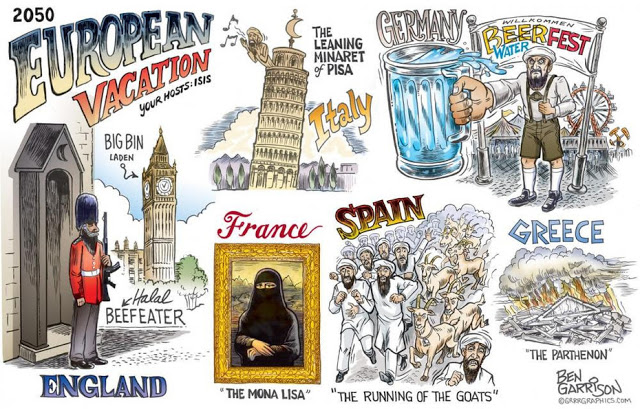The Hoover Institute reports in it’s study “European Demographics and Migration” that the Europe of today will certainly not be the Europe of tomorrow.
Such demographic shocks almost inevitably bring cultural conflicts. Sweden is in a situation that no modern country in the West has ever found itself in. If the United States by 2016 considered itself overburdened with a population that was 13 or 14 percent foreign-born, so desperately overburdened that it would turn to Donald Trump for leadership, how can we expect tiny Sweden, a rustic monoculture until the day before yesterday, to behave now that it has a population of which almost 19 percent has been born abroad. In many European countries there is talk about how, if migration isn’t slowed down, the country will eventually become unrecognizable.
In Sweden, it may be too late to avoid that. Sweden’s Muslim population is now 8.1 percent. According to the Pew Research Center, Sweden will reach 30 percent Muslim by 2050 if refugee flows continue at the current rate and 21 percent Muslim in the unlikely event that they stop altogether. Already, foreign-born mothers account for more than 30 percent of Sweden’s babies.
The impact on European culture of mostly Muslim Middle Eastern and North African newcomers has long haunted the European political imagination. Only in the last decade or so has it dawned on migration specialists that sub-Saharan Africa might be the source of an even larger disruption.

